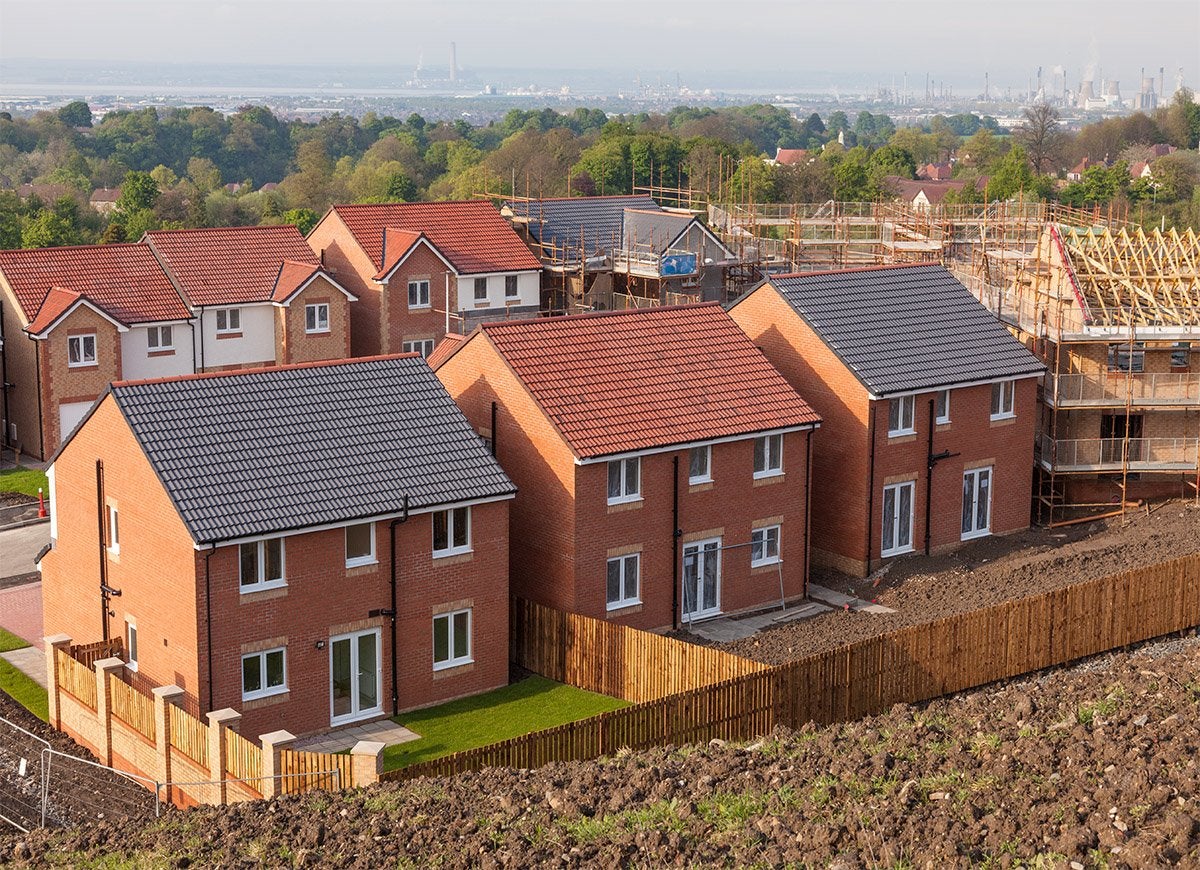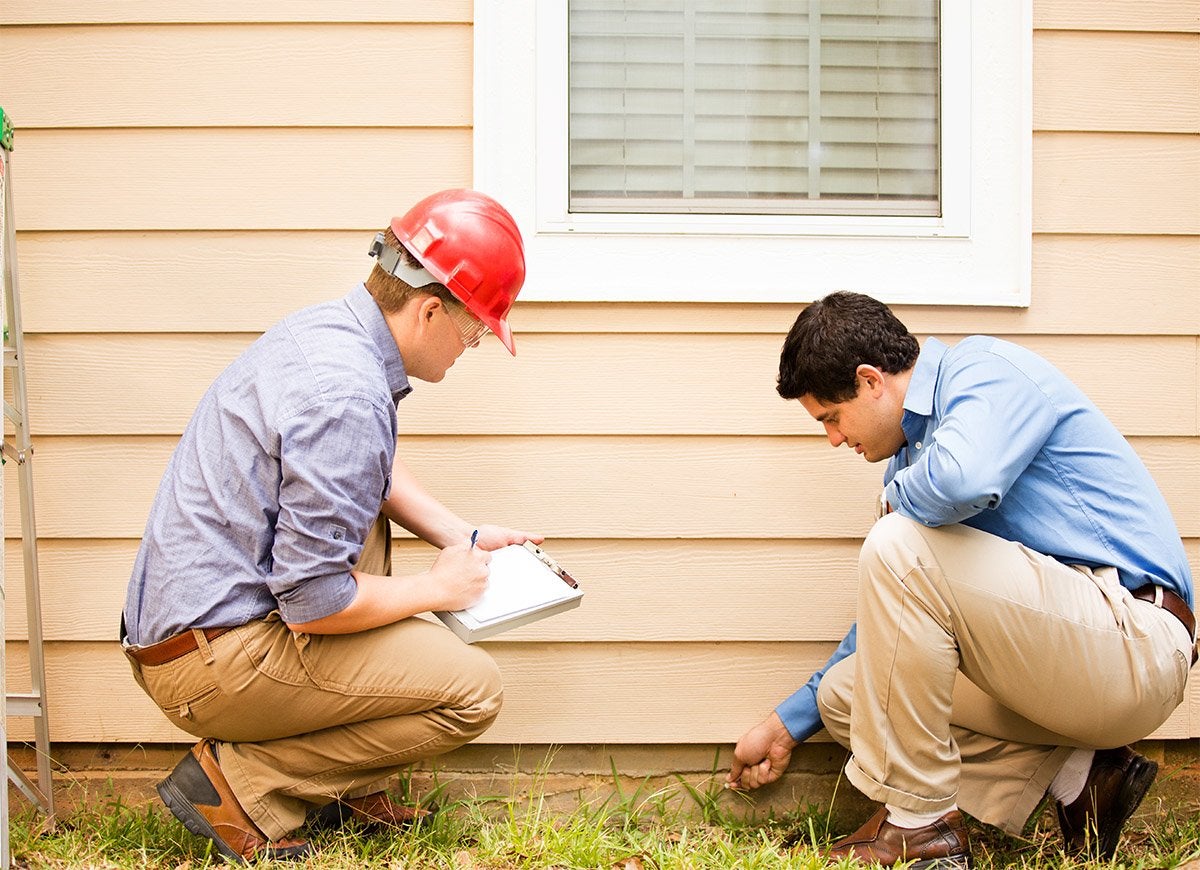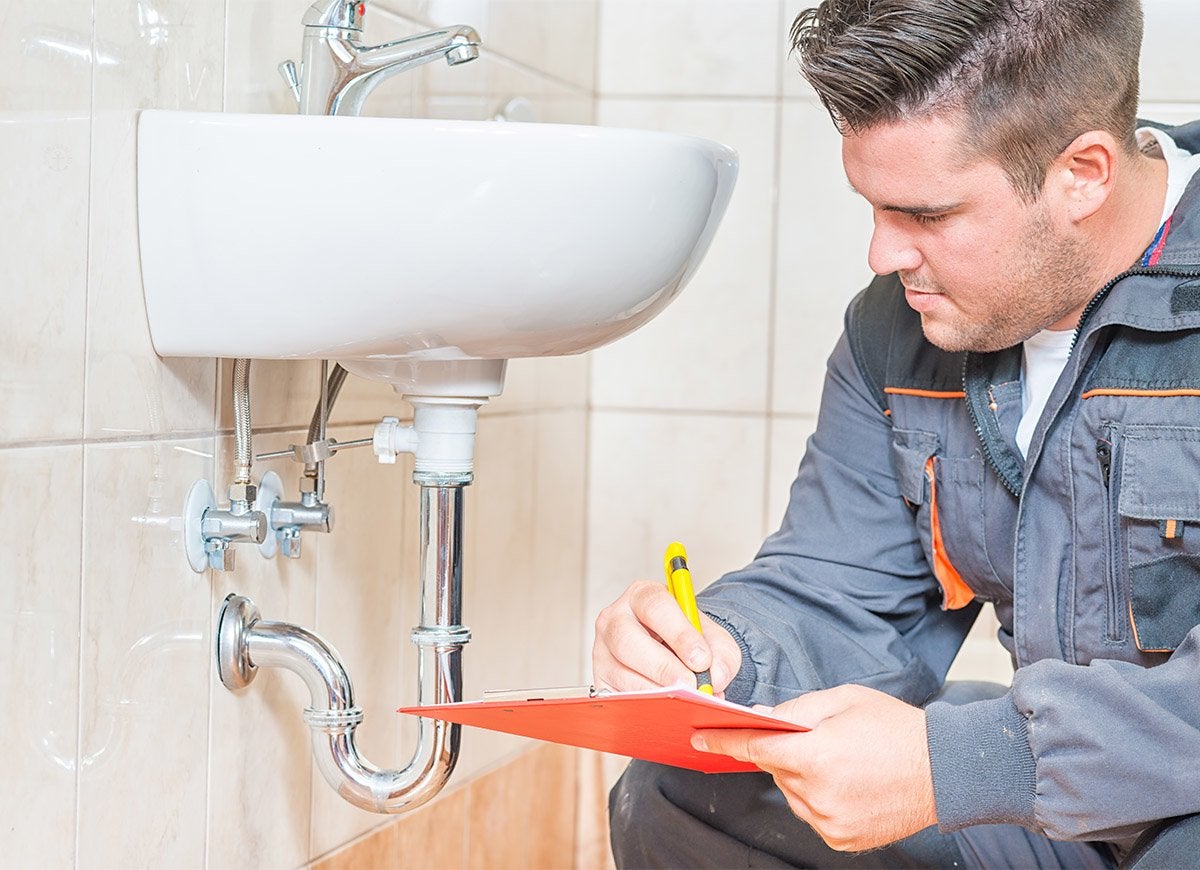

We may earn revenue from the products available on this page and participate in affiliate programs. Learn More ›
Home Advice You Can Trust
Tips, tricks & ideas for a better home and yard, delivered to your inbox daily.
Know the true cost of homeownership

Think you’re getting a raw deal by renting your digs? The truth is that homeownership will put you on the hook for big-ticket expenses you don’t have as a renter. In addition to your monthly mortgage payment, you’ll also have to pay property taxes, homeowners insurance, utilities, maintenance and repairs, and possibly even homeowners association (HOA) dues. An online buy or rent calculator can help you evaluate the real costs of homeownership in your area and determine whether you’re financially prepared to buy now.
Be picky about location

Planning on buying a home in a city or even a state other than the one you live in now? Use online resources like City-Data.com or NeighborhoodScout.com to get the lowdown on cities and specific neighborhoods, including essential info like climate, cultural activities, and crime statistics. After doing a little research, narrow your choices of location to those that suit your lifestyle and preferences. For example, you may want to focus on towns that are close to your place of work and have highly rated school districts. Or you may be looking for a neighborhood that’s walkable, has an active nightlife, or is suitable for retirees.
Enlist a buyer’s agent

Resist the urge to head over to a real estate listings website and contact the listing agent for a home that catches your eye. Listing agents are obligated to work in the interests of the seller, not the buyer. For this reason, it’s to your advantage to seek out a referral from family members, friends, or coworkers for a buyer’s agent in the town where you’re house-hunting. A buyer’s agent acts in the buyer’s interests, providing the trustworthy guidance needed to navigate the complex purchase process.
Settle the cash versus loan debate

Do you plan to pay for your new home with cash, or will you take out a loan? The answer can have important repercussions for your home-buying budget and your ability to keep up with ongoing expenses. Buying a home outright frees you from taking on long-term debt and offers a sense of financial security. But it ties up a large chunk of your money, which means you may find it hard to handle an emergency expense, or you may have trouble paying ongoing costs like car loans. With a home loan, on the other hand, you’ll probably still have savings to tap into to cover emergency expenses, but you’ll be saddled with debt over the long term, and the interest you’ll be paying will increase the cost of your home over the lifetime of the loan.
Get preapproved

If like most buyers you plan on taking out a mortgage, it’s prudent to get preapproved for a home loan before you start hunting in earnest. Not only will this give you a better idea of what you can afford, but lenders can alert you to debt or credit issues that may affect your ability to get a loan or the size of the loan. Your real estate agent can put you in touch with a lender who can assist you during the preapproval process.
Get your loan docs in order

Before meeting with your lender for loan preapproval, download and review the mortgage checklist published on the lender’s website. The checklist will include all the documentation needed to apply for a loan, including W-2’s, pay stubs, and bank statements. Coming to the lender meeting with all the necessary application documentation can help expedite your loan preapproval.
Set a budget—and stick to it

If a lender approves you for a loan amount that’s larger than you had anticipated, or if your real estate agent entices you with homes that are slightly above your price range, you may be tempted to blow your budget. Given the hidden expenses of homeownership, it’s wise to stick to your guns and stay within your means. The general rule of thumb is that your monthly mortgage payment shouldn’t exceed 25 percent of your monthly take-home pay.
Put your preferences to paper

Before you go house-hunting, make a list of the must-have and nice-to-have features of your dream home. Must-have features might include the size, age, and condition of the home you want, along with the number of stories, bedrooms, and bathrooms it should contain. Nice-to-have features could include a fireplace, a certain architectural style, a cul-de-sac location, or a wraparound porch. Thinking this through will help both you and your real estate agent focus your search on a manageable number of homes in the targeted location.
Rely on MLS property listings

While real estate websites that let you look up local property listings are a dime a dozen, not all of them contain up-to-date data. The risk of relying exclusively on these websites while house-hunting is that you may get attached to a property that’s no longer on the market. The best resource for current listings is the MLS, a network of over 700 regional databases containing local property listings. Your real estate agent has access to this network and can keep you apprised of new listings.
Don’t supersize it

Even if you can afford that behemoth bungalow down the street, bigger isn’t always better. Along with the higher square footage, larger homes generally come with higher property taxes, higher heating and air-conditioning bills, and a more time-consuming cleaning routine. Certainly look for a home large enough to accommodate your household, but a moderately sized home usually keeps your housing and upkeep costs lower.
Read between the lines of listings

Not every house in need of major renovation or repair will be advertised as such. In fact, real estate listings often rely on euphemisms to hint at underlying issues. If you intend to buy a home that’s more or less ready to move into, avoid those characterized in the listing as a “fixer upper,” a “work in progress,” or “in need of a little TLC.” And if you spot the words “as is” in the listing, this is an indication that the seller isn’t going to make repairs on the home before leaving. Understand that you’ll be on the hook to pay for any repairs yourself.
Evaluate the risks of buying at auction

Home buyers looking to score a bargain often make a beeline for homes being sold at auction rather than listed on the MLS. But buying a home at auction can carry huge risks. You may have to evict squatters, deal with legal claims to the property, or, in some cases, forgo the opportunity to have the property inspected. Most importantly, if you win the auction, you must buy it; you most likely won’t have the option to reconsider.
Suss out stigmas

Not all states mandate that sellers disclose any stigmas associated with a property—for example, a home that was the site of drug activity, reported hauntings, prior contamination, or murder. These so-called stigmatized properties are often shunned by buyers and may have a lower market value than comparable homes. When in doubt, ask your agent about the history of a home to uncover any less-than-savory details about its past. If you’re still interested in it despite a sordid past, you may be able to strike a deal.
Beware of bad builders

Americans stay in their homes for an average of 13 years, according to a study conducted by the American Housing Survey and published by the National Association of Home Builders, so you want to ensure that yours was built to last. Ask your real estate agent about the reputation of the builder who constructed the house you’re interested in, or do a little research on your own. You will find that some builders are known for exemplary craftsmanship, while others are known to cut corners. Because one builder often constructs many or all the homes in a neighborhood, if you’re not satisfied with a particular builder, you may want to look for homes in another neighborhood.
Factor in the negatives of buying new

New or recently built homes are often coveted by buyers for their modern looks, up-to-date amenities, and move-in condition. But be sure to consider the drawbacks of buying new before you exclude older homes from your hunt. Newer homes can come with a higher cost (a result of their upgraded amenities) and smaller lots, and they’re often located farther from city centers than more established homes.
Keep your eyes open during open houses

An open house isn’t simply an opportunity to visualize yourself living in a home. You should also evaluate whether the house matches the information in the property listing and do a cursory check for structural or environmental issues that could warrant costly repairs. You may want to reconsider buying (or at the very least, inquire further) if you observe uneven floors (a possible sign of foundation issues), a musty smell (a sign of water damage), or peeling or bubbling paint (which could stem from ventilation issues).
Don’t get married to the first house you see

When you’re hunting, don’t be too quick to become attached to a particular house. The Property Brothers recommend touring at least 10 homes before making a purchase decision. Because it’s easy to confuse two houses after a weekend spent at various open houses, be sure to jot down the pros and cons of each home while you’re at the open house or immediately afterward. This way, you can make a clear comparison of the homes and easily identify which one ticked the most boxes for you.
Meet the neighbors

You may not be able to choose your neighbors, but walking or driving around near the house you have your eye on and introducing yourself to neighbors will give you a good sense of the local cast of characters. Chatting with your potential neighbors can also help you learn a little more about the house you’re interested in and gain insider knowledge about the community. If your encounters leave you thinking that your personality or lifestyle isn’t a good fit with the neighborhood, consider moving on.
Investigate the HOA

If you intend to buy a home that’s part of a homeowners association (HOA), obtain and thoroughly review the the HOA agreement before you consider making an offer. Some HOA agreements have stringent rules on everything from where you can park to what color you can paint your front door. If you’re keen on customizing your home or are otherwise not prepared to fall into step with HOA norms, it’s better to find a more accommodating HOA community or find a home that’s not under the governance of an HOA.
Assess nearby noises

Are you a light sleeper? Scout out the area near your future home at various times of the day, including nighttime, to make sure it’s not too close to a noisy thoroughfare or under a flight path. A little due diligence could spare you years of restless nights.
Have earnest money ready to go

Earnest money is a security deposit you make, typically held by an escrow company, as a sign of good faith that you intend to go through with the real estate purchase. Because the money is due when the seller accepts the offer, be sure you have enough cash sitting in your checking account before you make an offer on the home.
Make an offer they can’t refuse

When you’re ready to make an offer on your dream dwelling, avoid underbidding, especially if you’re buying in a seller’s market. Making a fair offer demonstrates your knowledge of the local real estate market and your commitment to buying, so it’s more likely to be accepted than a lowball offer. In a buyer’s market, it’s not unheard of to offer up to 10 percent below the asking price, whereas in a seller’s market you may find it hard to go more than 5 percent below asking price. Be sure to ask whether any repairs will be made and which, if any, appliances will remain in the house, so you can factor this information into your offer.
Counter with care

If the seller counters your offer to get closer to the asking price and you choose to counter, be sure that your offer is one you’re truly prepared to pay. Likewise, if you get sucked into a bidding war, keep your budget in mind and know when to back away.
Put offer contingencies in place

Buyers have the option of putting certain conditions on their offer that, if not met, would permit them to renegotiate or back out of the purchase. To protect yourself, consider including at a minimum home inspection, financing, and appraisal contingencies. Doing so would mean that the deal would go through only if the home passes the inspection, you are able to obtain the necessary financing, and a certified appraiser determines that the home is worth the offer price.
Choose independent-minded inspectors

A reputable real estate agent who has your best interests at heart will generally refer you to a qualified and independent home inspector. But if you’re not satisfied with the inspection company that was recommended, or if you suspect that your agent is more concerned about closing on the house than helping you uncover real deficiencies in the property, you’re within your rights to go with a home inspection company of your own choosing. When you interview potential home inspectors, ask for references, ask about their experience and track record, and find out what the inspection includes.
Don’t skip the sewer or septic system inspection

Some, but not all, home inspection companies include the septic system or sewer line as part of their process. If yours doesn’t, and if you can swing the additional cost of a separate inspection (anywhere from $100 to $250), it’s in your best interest to have this done before you commit to buying the house. Clogged sewer lines and damaged septic tanks are expensive, disruptive, and potentially smelly problems to have to deal with after you’ve moved in.
Know that a small down payment can cost you big

Lenders will typically require you to make a down payment (the amount of the purchase price that is not covered by a mortgage loan) of anywhere from 5 to 25 percent of the purchase price by closing. But just scraping by at the low end of this range could put you on the hook for private mortgage insurance (PMI). The purpose of PMI is to protect the lender in the event you need to back out of your loan. To avoid having to pay for PMI, make a down payment of at least 20 percent.
Schedule seller repairs early

When negotiating with the seller to make repairs for problems uncovered in the home inspection, focus on big-picture items such as the roof or plumbing. At this late stage, don’t bring up flaws in the property that should have been pointed out before the initial offer, such as a bad paint job. If the seller agrees to make the repairs, schedule them so that they will be complete several days before closing.
Do a diligent walk-through

Never skip the final walk-through that usually occurs the day before closing. Use the opportunity to ensure that any agreed-upon repairs were made and that the property is in the same state it was when you agreed to buy it. An inspection is especially critical in a situation where the house has been vacant in the time leading up to the closing, as problems like pests or flooding can strike while a home is unoccupied.
Have the cash needed to close

Before you can collect the keys to your new digs, you will need to sign the final contract and pay what are known as closing fees. These fees, which include loan origination fees, title fees, and transfer fees, to name just a few, usually amount to anywhere between 2 and 5 percent of the purchase price. Budget these fees into your purchase costs and have them in escrow or in the form of a cashier’s check before closing so that you can dole them out without delay on closing day.
On the Hunt

When hunting for a home, keep your emotions in check, and your head in the game.

The Homeowner Survival Kit
This year’s Bob Vila Approved is a hand-picked curation of tested, vetted, must-have essentials for surviving homeownership today.